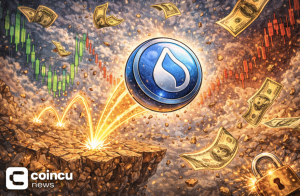Loopring Launches Block Trade Allows Self-Hosted Wallets Direct Access To CEX
Key Points:
- Loopring introduced Block Trade, which gives users access to self-storage wallets to various sources of liquidity, especially CEX.
- This allows users to access different sources of liquidity, minimizes slippage, and fosters a more efficient, competitive decentralized finance (DeFi) landscape.
- Currently, the beta version of this functionality only supports selected trading pairs (ETH, LRC+USDC), and more trading pairs will be expanded later.
Loopring has announced the introduction of Block Trade, a way to directly access critical CEX liquidity from a self-hosted wallet on the protocol.

According to the official blog, the Ethereum Layer 2 protocol Loopring announced the introduction of direct access to main CEX liquidity from a self-hosted wallet on Loopring L2, which is Block Trade.
The Block Trade feature will provide Layer 2 users with autonomous access to various sources of liquidity, minimizing slippage and fostering a more efficient, competitive decentralized finance (DeFi) landscape. These swaps are executed directly between specific entities, leaving the liquidity and DEX prices available to other users untouched.
This functionality is similar to the traditional stock market block trading system, and it is mainly aimed at CEX users who no longer want to transfer funds to third-party custodians and DeFi users who often need to transfer large orders to CEX. to do this process.
Small and medium-sized decentralized exchanges (DEXs) often face a significant obstacle, a need for more liquidity or market depth. This is especially difficult for more prominent traders. Large swaps can exhaust the automated market maker (AMM) pool, leading to a significant price impact. Loopring’s newest feature is designed to solve this problem.
This mechanism mirrors the block trading systems used in traditional stock markets, where privately negotiated important transactions are carried out outside the open market through private purchase and sale agreements.
Currently, the beta version of this functionality only supports selected trading pairs (ETH, LRC+USDC), and more trading pairs will be expanded later.
DISCLAIMER: The Information on this website is provided as general market commentary and does not constitute investment advice. We encourage you to do your own research before investing.
Join us to keep track of news: https://linktr.ee/coincu
Foxy
Coincu News





















